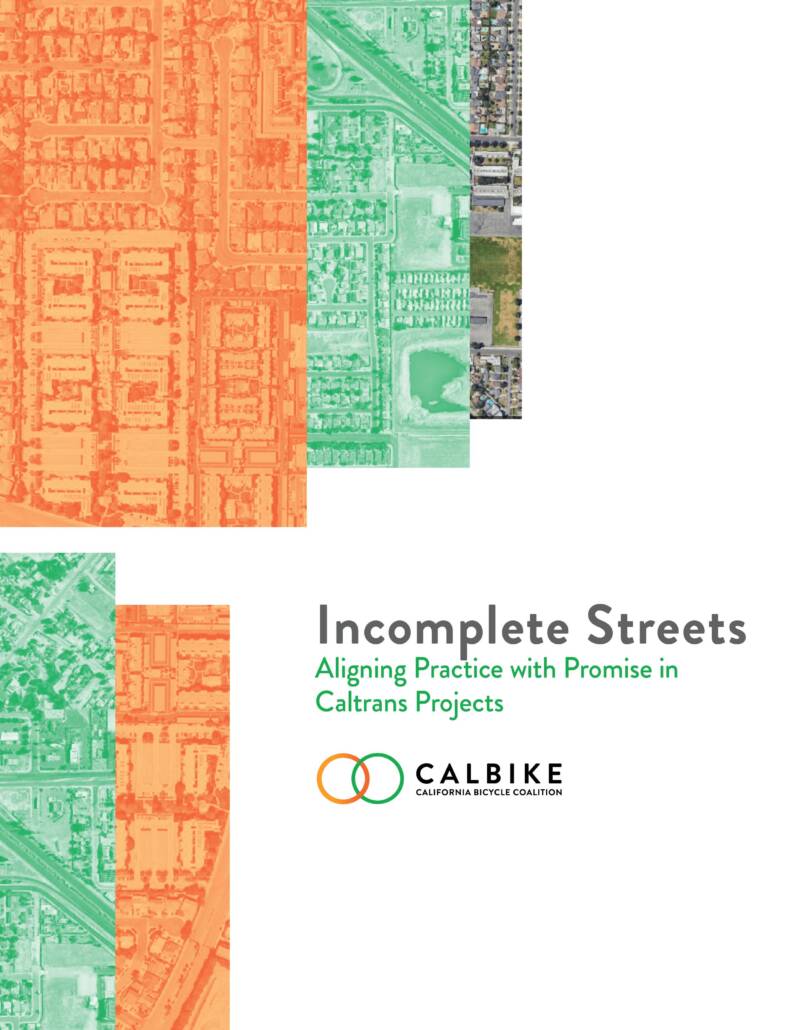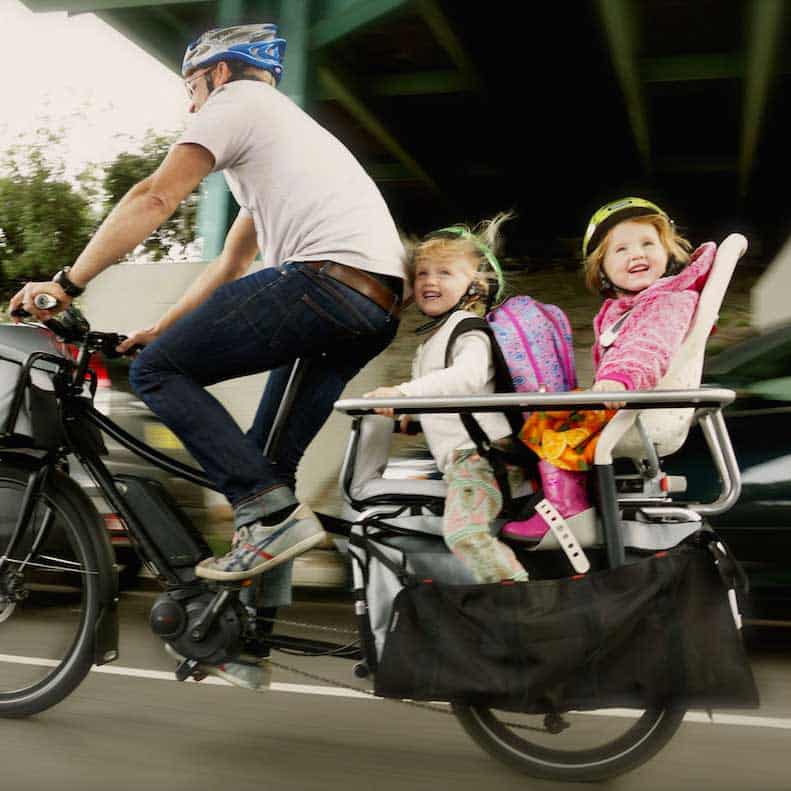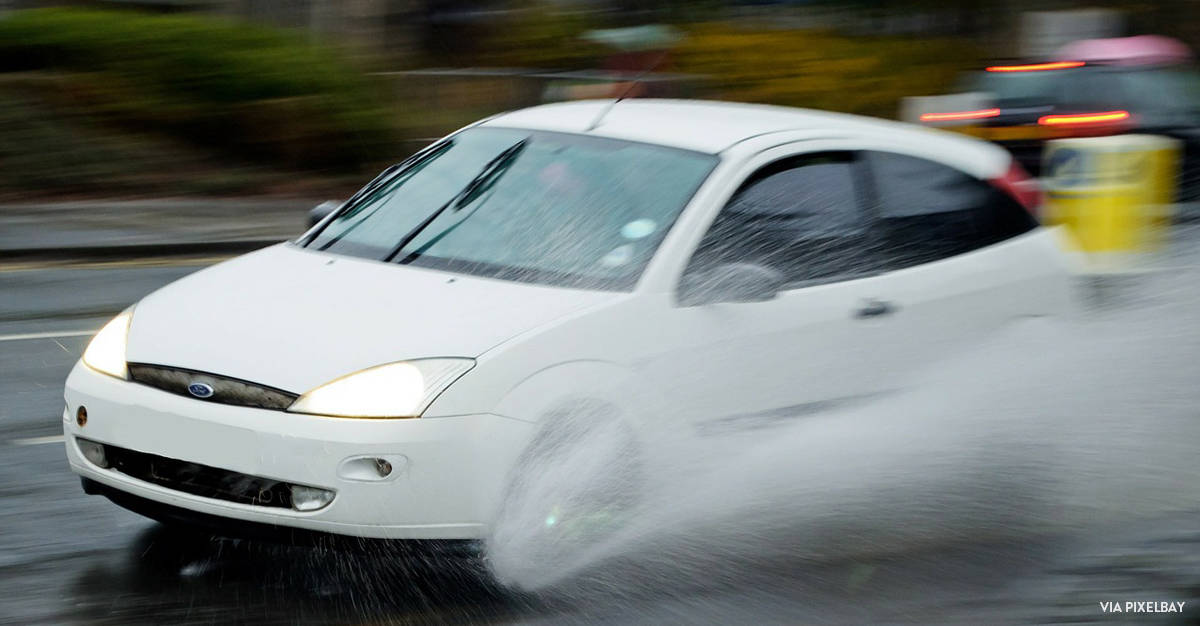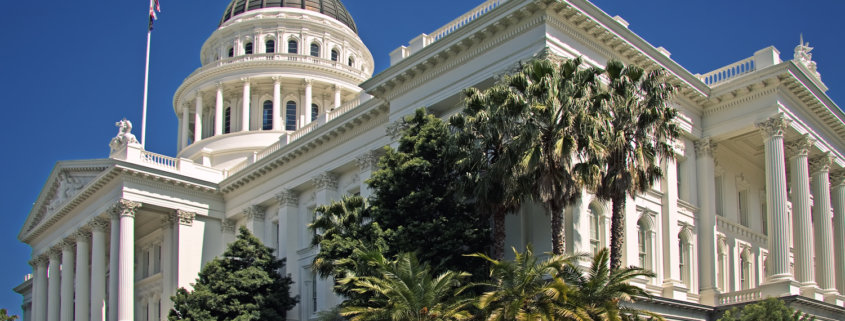Bike-Friendly Wins and Losses (but Mostly Wins) in 2024
Governor Gavin Newsom has either signed or vetoed all 600 bills that made it to his desk this year. Nine of the bills CalBike supported made it to the governor’s desk — he signed seven and vetoed two. Another eight bills CalBike supported died in the legislature. In addition, two e-bike pilot measures we were watching became law, and one e-bike restriction died in the legislature.
Of course, the huge news from this legislative session is that Complete Streets on Caltrans corridors is now California law with the signing of SB 960, strengthening the mandate for Caltrans to update our state routes to serve all users when it does maintenance projects.
Here’s our legislative recap.
Complete Streets crosses the finish line
It took three tries, with bigger coalitions and campaigns each time, but Senator Scott Wiener’s Complete Streets Bill, SB 960, is now the law in California. This is a huge victory for advocates of safer streets and active transportation access. Caltrans maintains thousands of miles of state routes, many of which serve as community main streets. Because the agency has historically managed these roads with the goal of maximum motor vehicle throughput, they are among the most deadly streets for people walking and biking.
What will change now that the Complete Streets Bill is law?
The Complete Streets Bill was modified (watered down) during the legislative process, a common occurrence. But the final version includes a strong mandate requiring Caltrans to do a better job of using State Highway Operation and Protection Program (SHOPP) funds to build much-needed bikeways, sidewalks, bus boarding islands, and more.

In addition, the scrutiny on Caltrans has ramped up since it fired Jeanie Ward-Waller last year. The campaign for the Complete Streets Bill and CalBike’s Incomplete Streets articles and report shone a light on trends and practices that fail to protect the safety of vulnerable road users. CalBike will continue to work with the agency and assess its progress to comply with state law and build Complete Streets wherever feasible.
Specifically, SB 960 will:
- Require Caltrans to commit to four-year targets for adding Complete Streets improvements to state roadways.
- Create policy for implementing transit-priority facilities and transit stops on state-controlled streets and highways.
- Speed the process at Caltrans for granting permits to local governments or transit operators that want to build Complete Streets networks that encroach on or overlap with Caltrans rights of way.
More good news
Here are four more excellent bills that CalBike supported and the governor signed.
- Transportation Accountability Act, AB 2086 (Schiavo): The transparency and reporting this new law mandates will help advocates like CalBike monitor progress on the Complete Streets law.
- Banning Bridge Tolls for People Walking and Biking, AB 2669 (Ting): This makes permanent a measure that would have sunset next year, allowing toll-free crossings for people who walk or bike across toll bridges. It will have the biggest impact in the Bay Area, which has several toll bridges with bicycle and pedestrian lanes.
- Bike Lanes in Coastal Areas, SB 689 (Blakespear): This new law limits the ability of the Coastal Commission to block the development of new bikeways on existing roads in coastal areas.
- Limits on Class III Bikeways, SB 1216 (Blakespear): Class III bikeways are lanes shared by bike riders and car drivers. While they may be appropriate for neighborhood streets and in some other contexts, they are sometimes used in place of more protective infrastructure because the cost is much lower. This new law will limit the use of state funding to create Class III bikeways on high-speed routes.
E-bike bills roundup
E-bikes were on the minds of legislators, with a number of bills introduced to regulate or restrict e-bikes and e-bike riders.

CalBike supported two of these bills, which the governor signed. The E-Bike Modification Bill, AB 1774 (Dixon), prohibits the sale of devices that can modify e-bikes to provide an electric boost beyond top speed limits that meet the definition of e-bikes. This addresses concerns about modified e-bikes that reportedly allow riders to go much faster than the 28 mph boost allowed under Class 3, the fastest classification of e-bikes.
The E-Bike Battery Safety Standards Bill, SB 1271 (Min), requires all e-bikes sold in California to have safety certifications for their batteries. This will help prevent most battery fires, since they are usually caused by substandard batteries. It also clarifies what can be advertised and sold as an e-bike, placing further guardrails on out-of-class two-wheel devices.
In addition, two bills we were watching became law. Both are local pilots to allow cities to add more age restrictions for riding an e-bike. State law already prohibits anyone under 16 from riding a Class 3 e-bike but places no restrictions on Class 1 and 2.
- E-Bike Restrictions in Marin County, AB 1778 (Connolly): This bill would prohibit a person under 16 years of age from operating a Class 2 electric bicycle and require any person operating, or riding upon, a Class 2 electric bicycle to wear a helmet. This is a pilot for Marin County.
- E-Bike Pilot Age Restrictions, AB 2234 (Boerner): This bill would create a pilot program in San Diego County that would prohibit a person under 12 years of age from operating an electric bicycle of any class.
Speed controls: vetoed
Governor Newsom vetoed two bills CalBike supported, and both addressed unsafe motor vehicle speeds. The Safer Vehicles Save Lives Bill, SB 961 (Wiener), was a companion to the Complete Streets Bill that would have required most cars, trucks, and buses sold in California to include passive intelligent speed assist (ISA) by 2030. Passive ISA gives drivers a signal when they exceed the speed limit by 10 miles per hour and can help prevent speed-related collisions, saving lives. The original version of the bill also required freight trucks to install sideguards, an inexpensive add-on that prevents people walking or bicycling from being dragged under the rear wheels in a collision. Sideguards not only save lives but also reduce drag, improving fuel efficiency. We hope both of these excellent safety measures become law in California and nationally.

The governor also vetoed the Unsafe Speed Penalties Bill, SB 1509 (Stern), which would have increased penalties for people caught speeding more than 25 mph over the speed limit on roads with speed limits of 55 mph or less. Speed is a significant factor in fatalities of vulnerable road users, so this is a regrettable veto.
Get the final results of all the bills CalBike was supporting or following on our legislative watch page.





